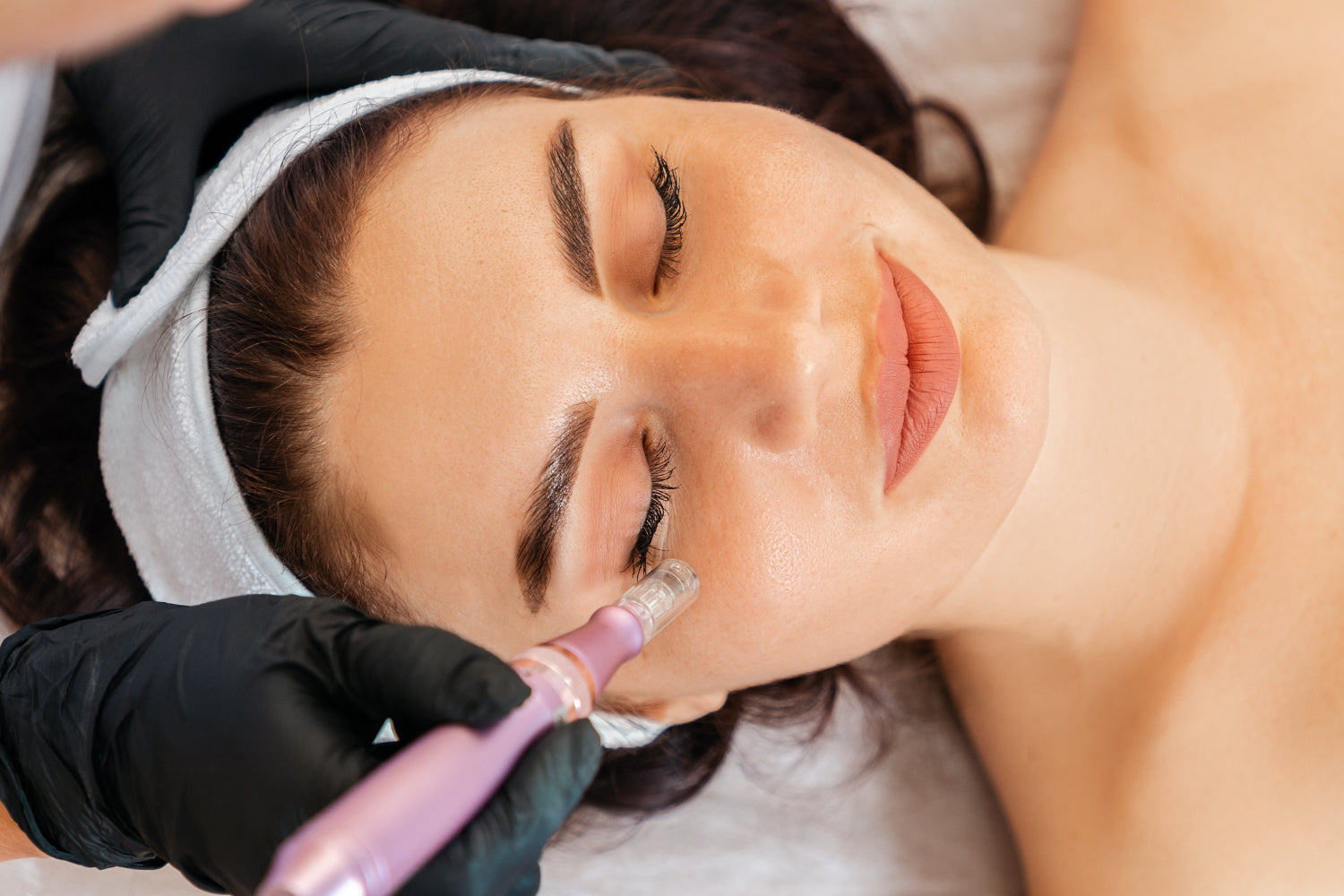Acne Scar Treatments
What Are Acne Scars?
Acne scars are marks or blemishes that remain on the skin after acne has healed. The battle against acne is one thing, but the battle against the lasting scars it leaves behind can be equally frustrating. Hence, there are many available treatments by MD Skin Lab.
What Causes Acne Scars?
Acne scars occur due to the body's natural healing mechanism triggered by inflammation from acne lesions. When skin pores become congested with excess oil, accumulations of dead skin cells and bacteria can give rise to various forms of acne, including whiteheads, blackheads, papules, pustules, and cysts. While the body tries to restore these irritated areas, the healing process sometimes unfolds imperfectly, forming scars. Common acne scarring triggers inflammation, picking your skin, untreated acne, genetic include and the impact of sun exposure.
What Are The Different Types Of Acne Scars?
There are various types of acne scars; let's examine their characteristics and causes: Atrophic Scars: These scars exhibit hollows or indentations in the skin, resulting from collagen loss during the healing phase. Within this category, three subtypes exist:
1) Ice Pick Scars: Thin and deep.
2) Boxcar Scars: Wide with sharp edges.
3) Rolling Scars: Create wavy skin texture.
Hypertrophic and Keloid Scars: These scars emerge when the body generates excess collagen during healing, resulting in thickened skin areas. While hypertrophic scars stay confined to the original acne lesion boundaries, keloid scars extend beyond the affected region. Keloid scars are more likely to develop in individuals with darker skin tones, and they often occur in areas of the body with less underlying fat, such as the chest, shoulders, and upper back.
Post-Inflammatory Hyperpigmentation (PIH): While not technically classified as scars, PIH entails darkened skin at healed acne lesion areas. This occurs due to intensified melanin production during the inflammatory cycle.
What Are The Acne Scar Solutions At MD Skin Lab?
At MD Skin Lab, we recognize that everyone's skin is unique, and we believe in providing personalized solutions, especially when it comes to managing acne scarring. Here are our recommended services to enhance your skin appearance and boost your confidence.
Acne Scar Filler
If you have acne scars on your skin that are indented or depressed, you may want to consider a dermal filler treatment. This is a non-invasive injectable treatment where a hyaluronic-acid-based filler is injected into the scarred areas, which adds volume and makes them less noticeable. The result is a smoother skin surface and immediate improvement in appearance that can last anywhere from a few months to over a year. Additionally, dermal fillers can activate the natural collagen production within the body, promoting a more rejuvenated appearance.
Microneedling
Microneedling is a cosmetic procedure that can enhance the texture and appearance of your skin as well as reduce the appearance of acne scars. The process involves using a device called the SkinPen, which has tiny and sterile needles. The SkinPen creates controlled micro-injuries on your skin, prompting your body's natural healing response to trigger collagen and elastin production. Collagen provides structural support, while elastin keeps your skin elastic. As your skin repairs itself, it undergoes a rejuvenation process, resulting in improved texture, firmness, and a youthful appearance.
PRP Microneedling
If you're seeking a method to achieve a glowing complexion, MD Skin Lab can help! Our PRP Microneedling treatment is a gentle and safe way to revitalize your skin without requiring surgery. This treatment uses platelet-rich plasma (PRP) from your own blood to stimulate collagen production and rejuvenate your skin. As we age, our bodies produce less collagen, which leads to wrinkles and other aging signs. However, PRP therapy can help increase collagen levels and encourage the growth of healthy, new skin. PRP microneedling is different from microneedling. Microneedling specifically involves using tiny needles to create micro-injuries in the skin, stimulating collagen production and improving skin texture. PRP (Platelet-Rich Plasma) microneedling combines microneedling with the application of the patient's own platelet-rich plasma, which contains growth factors that can further enhance collagen production and promote skin rejuvenation for a potentially more pronounced and accelerated result compared to traditional microneedling.
Morpheus 8/ Radiofrequency Microneedling
Morpheus8, combining microneedling and radiofrequency technology, can help manage active acne by reducing excess oil production, shrinking enlarged pores, calming inflammation, controlling acne-causing bacteria, and improving the skin's ability to absorb topical treatments. It’s also important to note that Morpheus8 can also treat acne scars, making it an excellent choice. A consultation with a skin professional at MD Skin Lab is essential to determine its suitability for your acne concerns and create an effective treatment plan.
Radiesse
For those struggling with indented or depressed acne scars, Radiesse offers an effective solution at MD Skin Lab! Radiesse is a non-invasive injectable treatment that adds volume to the scarred areas. This composition fills in the indentations, making scars less noticeable and stimulating the body's natural collagen production. The result is a smoother, more even skin surface with improvements that can last up to a year or more. Radiesse provides immediate enhancement and promotes long-term skin rejuvenation, helping you achieve a more refined and youthful appearance.









